Nerve damage claims are for damage to your nerves due to medical negligence. You may suffer nerve damage due to a surgical error or a simple procedure going wrong, but the effects could stay with you for life.
Damage to the nerves can affect every part of the body. The long-term pain and discomfort impinge on daily routines and make simple tasks difficult.
Many people suffer mental health issues due to the lasting effects of nerve damage in additional to the physical pain.
If you suffer nerve damage due to medical negligence, you will be in line for a nerve injury compensation claim.
Nerve injury compensation claims are for the lack of professional care in dealing with your injury or when surgery has damaged your nerves.
A No Win No Fee medical negligence solicitor will handle your nerve injury claim for compensation and get you the money you deserve.
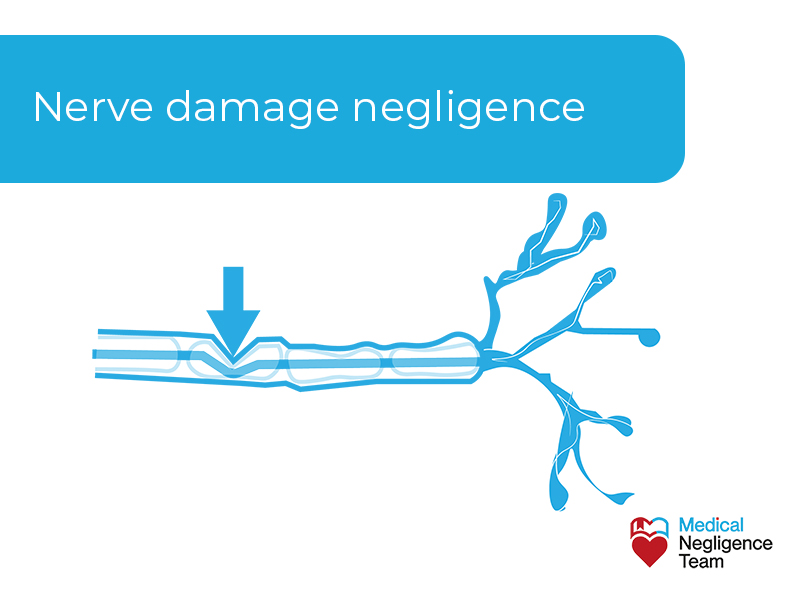
Table of content
What is nerve damage?
Nerve damage is when the nerves carrying the signals from the central nervous system throughout the body suffer damage, disrupting the way they operate.
Your body’s complex nerve system runs from the tips of your toes through the brain and spinal cord to the top of your head. Every sensation you feel comes through the nerves and involves everything you do from the moment you wake in the morning.
When you pick up an object, your nerves send a message to the brain, such as, ‘this is hot.’ If you suffer nerve damage, these messages are interrupted, and that link between the brain and other parts of the body is broken.
Medical negligence may make a nerve injury when a doctor slices or cuts the nerve connecting a part of the body with the brain. The permanent nerve injuries are very debilitating, and symptoms range from shooting pain to numbness. You make a nerve damage compensation claim for the effects of the negligence.
Nerve injury claims seek compensation for nerve damage due to negligence by a medical professional.
How can nerve damage be caused in health care?
Nerve damage can happen in health care when the doctor or other medical professional is negligent when treating you. The medical negligence due to their lack of professional care damages your nerves, causing you to suffer.
Causes of nerve damage in health care are:
The surgeon severing a nerve during surgery
The surgeon severing a nerve during surgery is a common source of nerve damage for hospital patients. Nerve damage can happen during complex surgery but is also seen in simple, everyday operations too.
If the surgeon severs a nerve during surgery due to medical negligence, you will have a nerve damage claim for compensation.
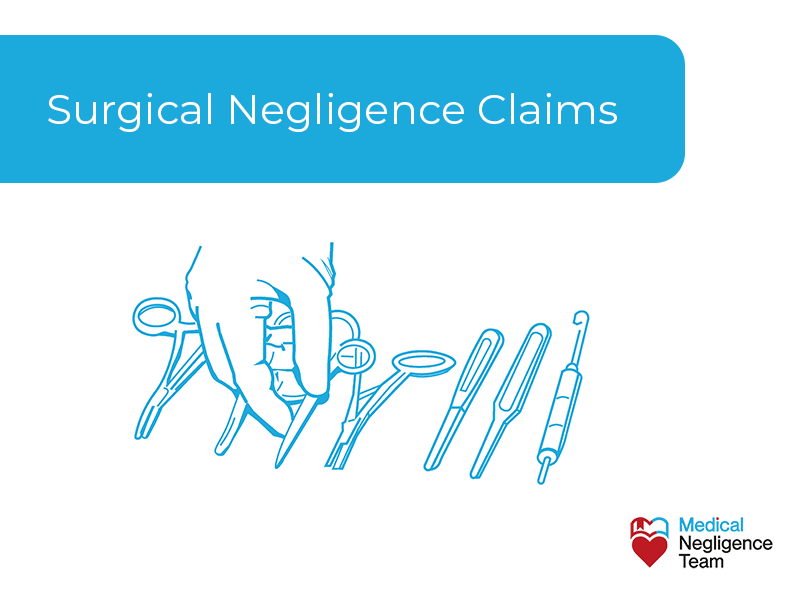
A needle hits a nerve
A needle hits a nerve when the doctor or nurse injecting you misses the muscle or vein. The needle hits the nerve, causing damage and a lot of pain.
Nerve damage from a needle can happen when taking blood, giving a shot of painkiller or even when administering an anaesthetic.

Medical equipment used incorrectly
Medical equipment used incorrectly during surgery causes nerve damage to the immediate area. Equipment such as a surgical retractor or tourniquets used for stopping blood loss can snip or bruise the nerves around the incision.
When medical equipment is not used correctly, it can do a lot of damage, particularly to the nerves.
Misdiagnosis of a neural condition
Misdiagnosis of a neural condition such as neuropathy delays treatment and can worsen the symptoms. Early intervention is key to reducing the effects of any condition, and often a misdiagnosis will lead to permanent damage.
A neural condition needs a definitive diagnosis and prompt treatment for the best medical outcome.

Medication errors
Medication errors can put a patient on a drug that inflames and worsens nerve damage. A medication error may also have a patient on a drug that does not lessen the symptoms of a nerve disorder, delaying the correct treatment.
A prescribing doctor must always ensure you are getting the correct medication; to not do so is medical negligence.
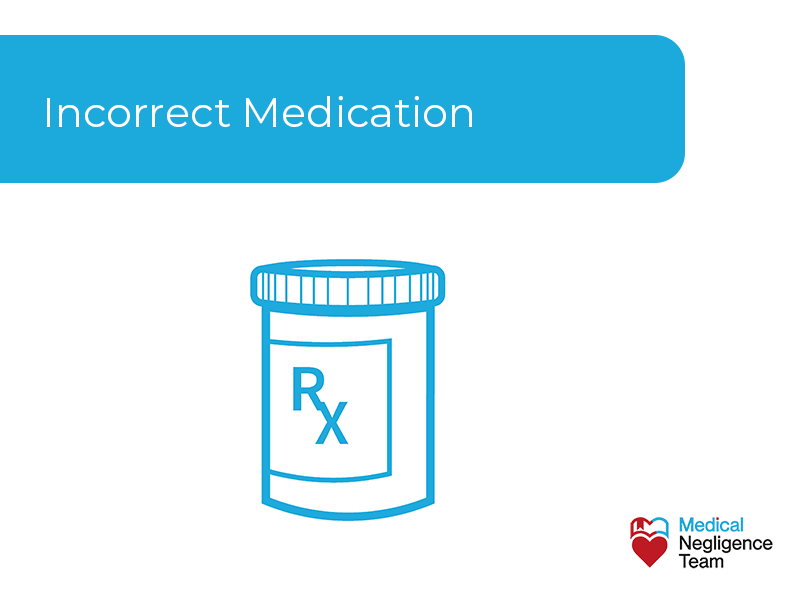
What are common nerve damage medical negligence claims?
Common nerve damage medical negligence claims are from surgery errors and medical equipment misuse. Many people also suffer nerve damage from misdiagnosis of a neural condition and from a needle hitting a nerve.
Some common nerve damage medical negligence claims are for:

A severed nerve during hip replacement surgery
A severed nerve during hip replacement surgery can happen when the surgeon does not pay attention when removing the old joint.
Instead of careful removal and replacement, they cut through the nerves around the hip, permanently damaging the area.
Damage to the nerves will make it difficult to walk, stand and sit and will affect the patient for life.
Damage to the spinal cord during an epidural injection
Damage to the spinal cord during an epidural injection is a very painful form of medical negligence. Instead of the doctor or nurse taking care to insert the needle, they use too much force and damage the spinal cord.
Damage to the nerves of the spinal cord can have many side effects, from difficulty in moving to numbness and constant shooting pain in the hip and down the legs.
Nerve damage while taking blood
Nerve damage while taking blood results from the needle hitting the median nerve in the arm instead of the vein. Taking blood can be difficult with a nervous patient or one who does not have prominent veins.
In these cases, the doctor, nurse or paramedic should take extra care not to cause nerve damage.
A nerve block causes nerve damage
A nerve block causes nerve damage when it is wrongly prescribed for a patient. Nerve blocks are used during anaesthesia but can cause nerve damage in some patients, and the risk should be fully explained in advance.
The side effects of medications are known to all prescribing doctors. They should know the uses of every medication and their interactions with others.
To prescribe a medication to a patient vulnerable to nerve damage is serious medical negligence.
Misdiagnosis of sciatica
Misdiagnosis of sciatica as muscle damage or internal bruising only causes the condition to worsen. Sciatica is a trapped nerve in the lower back, and you will need physio or surgery to correct it.
If the doctor prescribes painkillers and does not refer you for further examination, they are guilty of medical negligence.
There are many common claims for medical negligence causing nerve damage. If you suffer such medical negligence, you will soon feel the effects of the nerve damage.
What are the effects of nerve damage?
The effects of nerve damage range from tingling to numbness and severe pain. Many people have nerve damage due to medical negligence and suffer the effects for life.
The effects of nerve damage are:
If you experience any of the effects of nerve damage due to medical negligence, you may have a compensation claim against the responsible party.
Who is responsible for nerve damage?
A medical professional is responsible for nerve damage to you or a loved one. The doctor, nurse, surgeon or paramedic who cause the damage to your nerves have provided negligent treatment and are responsible for it.
In many cases, it is the hospital, clinic or private healthcare provider who is responsible for the nerve damage negligence.
Nerve damage due to medical negligence can often be permanent. The effects can be for life which you have to suffer and endure through the years of discomfort.
If you suffer from nerve damage due to medical negligence, you can make a compensation claim. The award you win will help you recover and get your life back on track again.
Your No Win No Fee medical negligence solicitor will handle your case and file your compensation claim for the nerve damage negligence.
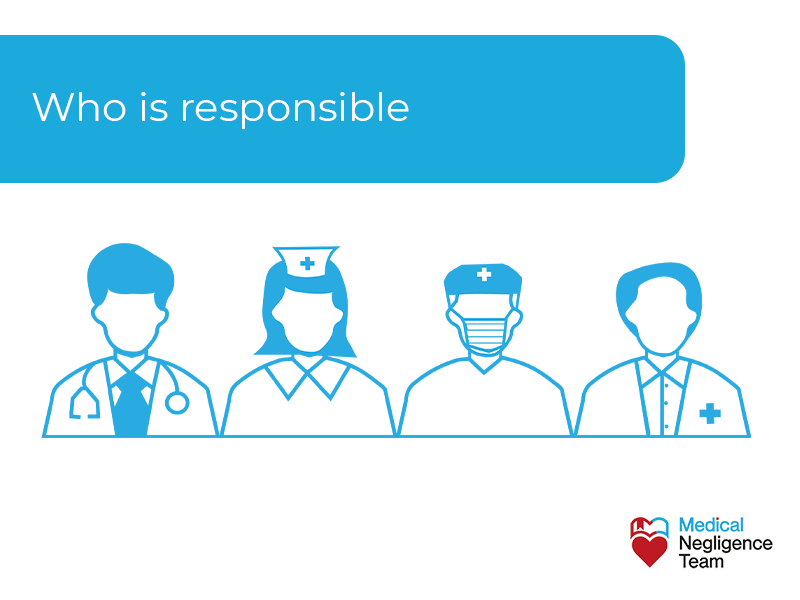
How much can I claim in a nerve damage case?
You can claim up to £10,000 in a nerve damage case, but in some, the compensation may be above £100,000. The amount awarded depends on the damage caused and the lasting effects on you or a loved one.
Use our claim calculator to see how much compensation you are entitled to.
The consequences of nerve damage negligence can be with you for life. You could suffer pain and ill health, which could have been avoided if the medical professional had done their job at an acceptable level.
There is not one fixed amount awarded in nerve damage negligence cases. The amount of compensation will differ from patient to patient, depending on the circumstances of the nerve damage and its effects.
As in all medical negligence claims, each case is dealt with on its merits and how much you have suffered due to nerve damage.
A No Win No Fee medical negligence solicitor will be the only one who can advise you on a nerve damage negligence claim. They will know from experience what your case may be worth and how to go about a successful claim.
Your No Win No Fee medical negligence solicitor will handle your nerve damage negligence claim and get you compensation for all damages incurred.
What can you claim for when suing for nerve damage negligence?
You can claim compensation for any damages that occurred, when suing for nerve damage negligence.
There are two types of compensation damages due when suing for any type of medical negligence: General damages and Special damages.
General damages
General damages are when you sue for the pain, suffering and the loss of amenity, PSLA, you have experienced due to negligence.
Special damages
Special damages include loss of earnings, future care costs, and out-of-pocket expenses.
Be sure to keep payslips, receipts and proof of any losses you experience as a result of the medical negligence.
You seek compensation to cover any losses through the personal injury claims process, including loss of life, medical costs and any long-term care needs.
When you or a loved one suffers from the effects of nerve damage negligence, you make a claim for compensation.
Your No Win No Fee solicitor will guide you through the steps in making a nerve damage negligence claim.
What are the steps involved in making a nerve damage negligence claim?
The steps involved in making a nerve damage negligence claim go from seeking medical advice to issuing court proceedings. The steps are a part of any successful compensation case, and settlement can happen at any stage in the process.
When you follow the steps correctly and get all the facts and figures together, your medical negligence solicitor will do the rest.
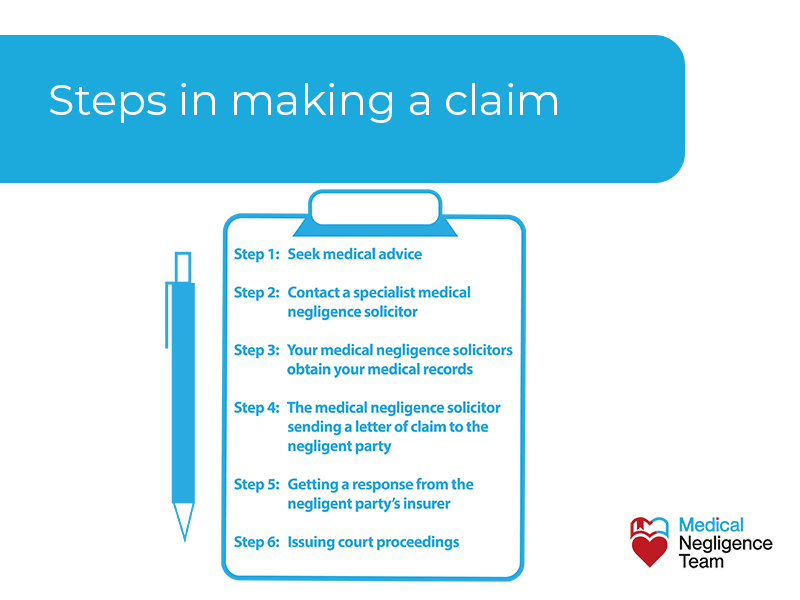
Step 1: Seek medical advice
Seek medical advice on the injuries you have suffered or are suffering with immediately you realise you experienced nerve damage negligence.
Step 2: Contact a specialist medical negligence solicitor
Contact a specialist medical negligence solicitor who operates on a No Win No Fee basis and tell them what went wrong. The right solicitor will look at your case, see where the problem lies, and advise if you suffered nerve damage negligence.
The Medical Negligence Team also have a 100% Compensation Guarantee scheme, where you get all the money awarded in a negligence claim.
You are the one who suffered medical negligence, and you should get all the money due for the suffering.
Step 3: Your medical negligence solicitor obtains your medical records
Your medical negligence solicitor obtains your medical records with your permission. By reading your records, they will confirm if they think you have a valid nerve damage negligence case.
The medical negligence team will know from reading your medical records if the case will result in compensation being paid.
Step 4: The medical negligence solicitor sending a letter of claim to the negligent party
The medical negligence solicitor sending a letter of claim to the negligent party is the next step. The letter will ask them to admit the nerve damage negligence in what is known as ‘sending a letter of claim.’
When the negligent party receives the letter of claim, it has up to four months to provide a written response.
Step 5: Getting a response from the negligent party’s insurer
Getting a response from the negligent party’s insurer will move your compensation claim closer to a conclusion.
The insurer will either admit the medical negligence or say they intend to defend the case. Deciding to defend the case is known as ‘deny liability’ in legal terms.
If they admit liability, your nerve damage negligence claim can be valued.
The two parties will meet to decide on your nerve damage compensation payment.
Your solicitor will negotiate with the negligent party and use their experience to get the compensation you deserve.
Step 6: Issuing court proceedings
Issuing court proceedings is the next step if they deny liability in your nerve damage negligence case. Going to court happens, too, when they are not prepared to pay a fair amount for the injuries you have suffered.
Your medical negligence solicitor issues the court proceedings.
Remember that less than 1% of medical negligence cases end up in court, and very few of those cases ever make it to the courtroom.
Using a No Win No Fee solicitor
Using a No Win No Fee solicitor is the only way to a successful nerve damage negligence claim. Your No Win No Fee medical negligence solicitor will not charge you for a claim you do not win.
Always have a fee agreement in place before engaging a medical negligence solicitor. If they start talking of a ‘win fee’ or a ‘success fee,’ you should walk away. The negligent party insurers should pay all fees.
The medical negligence solicitor should also operate a 100% Compensation Guarantee scheme. When you win the case, all the money awarded should go to you, not the solicitor.
You are the one who suffered nerve damage negligence, and you deserve the compensation to get your life back to normal.
How long do I have to make a claim for nerve damage negligence?
You have three years to make a claim for nerve damage negligence. All medical negligence claims are subject to limitation periods.
For example, in England and Wales, medical negligence claims must generally be brought, court proceedings issued within three years of the injury, or three years of knowledge of the facts giving rise to the claim.
If someone has passed away, it is the date of death if the limitation period has not expired at the date of death.
Children not under a disability typically have until they reach 21 to start a nerve damage negligence claim or court proceedings.
Persons under a disability, who lack capacity, are not subject to any limitation period.
Can I make a medical negligence claim against the NHS?
Yes, you can make a medical negligence claim against the NHS. Suing the NHS for negligence is not unusual. People sue the NHS for compensation for medical negligence and receive the money they deserve for the negligent treatment.
Each year there are between 8,000 and 10,000 successful medical negligence claims against the NHS. Suing the NHS for medical negligence can make some people feel uncomfortable.
Amounts in compensation claims awarded against the NHS range from £1000 to over £10 million. The amount you receive covers minor injuries such as scarring to serious life-threatening negligence, which leaves you with long-term care needs.
We trust in and use the NHS daily and do not expect negligence. It happens, though, and the NHS has a dedicated team to handle medical negligence compensation claims, called NHS resolution.
NHS Resolution has a responsibility to treat patients who seek compensation fairly. Patients pay for the NHS through their taxes, and for that they deserve respect and the best medical treatment.
Contact The Medical Negligence Team
Contact the Medical Negligence Team today to discuss your nerve damage negligence claim for compensation. We have both the legal and medical experts to guide you along the steps to a successful medical negligence claim for compensation.
At the Medical Negligence Team, we fight every compensation claim on a No Win No Fee basis. You will not be out of pocket for an unsuccessful claim.
We have a very high success rate and a reputation for a speedy and successful resolution to all medical negligence cases.
Our 100% Compensation Guarantee puts all the money you win into your pocket. You or your loved one suffered nerve damage negligence, and you deserve every penny of the compensation.
Contact us at the Medical Negligence Team for all your medical negligence needs.


